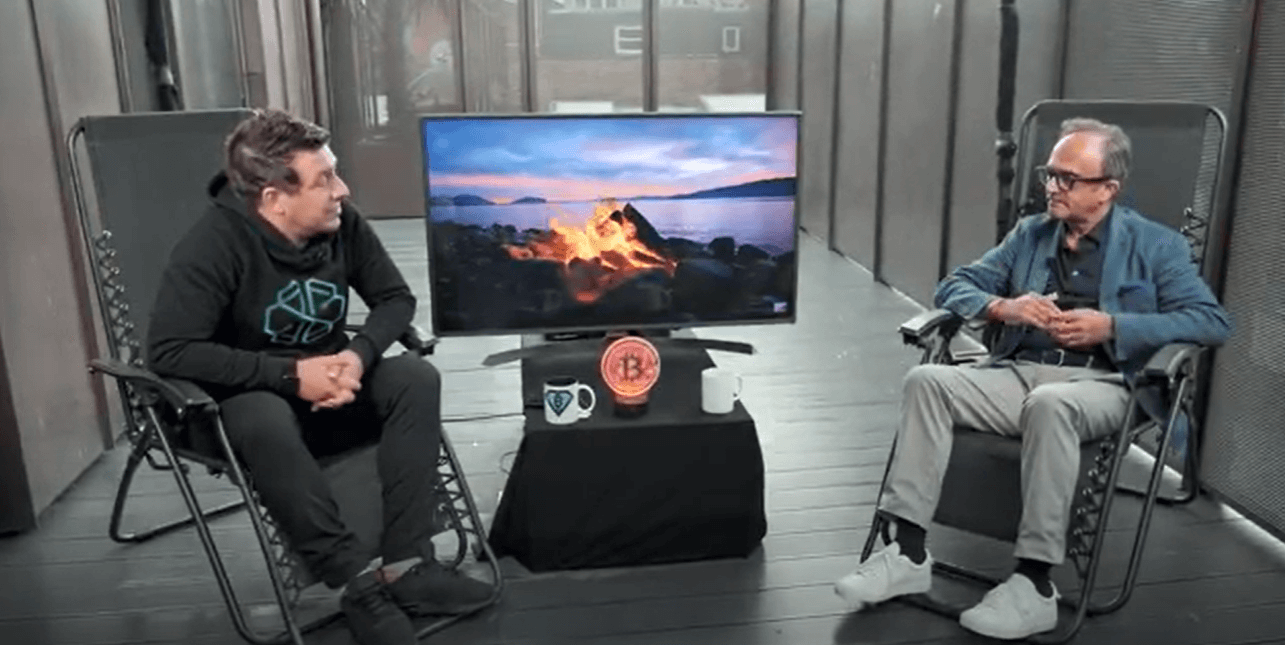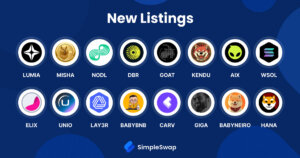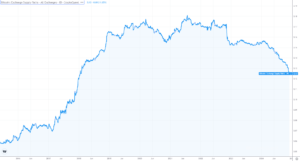 Zilliqa’s Max Kantelia on DeFi and the roaring 90s, asset bubbles, and why everyone can’t be Steve Jobs
Zilliqa’s Max Kantelia on DeFi and the roaring 90s, asset bubbles, and why everyone can’t be Steve Jobs Zilliqa’s Max Kantelia on DeFi and the roaring 90s, asset bubbles, and why everyone can’t be Steve Jobs
The rise of decentralized finance (DeFi) has been buoyed on trends like non-custodian lending, automated market making, and yield farming, which together, have opened newer possibilities for users to spend and use their cryptocurrency holdings, while even earning attractive interest rates. Recent reports show over 96% of all DeFi transactions take place on Ethereum, the […]
The rise of decentralized finance (DeFi) has been buoyed on trends like non-custodian lending, automated market making, and yield farming, which together, have opened newer possibilities for users to spend and use their cryptocurrency holdings, while even earning attractive interest rates.
Recent reports show over 96% of all DeFi transactions take place on Ethereum, the world’s second-largest blockchain network by market cap, even as more scalable and low-fee networks continue to be deployed and developed.
One such network is Zilliqa, a public blockchain powered by sharding on its mainnet, delivering high performance and high security for enterprises and applications.
In an interview with crypto edutainment platform Cryptonites host Alex Fazel this week, Zilliqa co-founder Max Kantelia laid his thoughts on the present and future of DeFi, the effect of the ongoing pandemic, and how market research is essential for any crypto project, among other topics.
Here’s what Kantelia said.
The rise of DeFi and the market’s nascency
The Zilliqa cofounder started off stating that the decentralized finance (DeFi) market — optimistically heralded by some as being able to replace all financial tools within months — remains in its “birth” stage and still has a “long way to go.”
Kantelia noted the DeFi market reminded him about the early 90s, a time of innovation, rising technologies, and newer schools of thought which set the narrative for the next few decades.

He compared DeFi to the then burgeoning futures and options market. “I remember people losing the shirts off their backs, a little bit after they bought the latest Porsche or whatever.”
“And this time is so reminiscent of the early nineties because if you don’t really know what you’re doing. And, we all should hit those warning bells, but we don’t, right,” he stated, referring to the recent DeFi bull market that saw the sub-sector’s total market cap rise to over $11 billion, despite the lack of audited contracts and enough security features in some cases.
Kantelia cautioned:
“You’ve got to be a little bit of a nerd to actually understand how you go about doing these things because they are not first nature to most of us.”
Bubbles come and go…but that’s how growth occurs
Speaking of inflated valuations, Kantelia said market bubbles are a regular occurrence, such as the “.com” bubble in the early 2000s and more recently the hype around FinTech startups.
“FinTech was supposed to have killed banks and insurance companies and fund managers and that hasn’t happened. So I think that we see this hype bubbles from time to time and more people get burned by them than people who profit from them,” he stated.
However, bubbles are not necessarily a bad thing, Kantelia said. “I think what does happen is it moves society along for, for the good, because we learn what not to do, what to focus upon.”
“And so I’m seeing at the moment, um, startups growing like wildfire because they’ve grasped the future. And, and the future is going to be very different from how it was pre this crisis. We know that especially in terms of the world of work and I mean, even been seeing large corporations, making decisions in weeks that would take them historically 18 months to two years to make.”
“This, I think, is amazing. This is an amazing time to start a business and crises are great times to start businesses, whether people are being forced out because they don’t have a job or because they’re just desperately keen to change something and make it better,” he added.
Zilliqa’s future and why market research is paramount
On Zilliqa and the network’s ZIL tokens, Kantelia stated the team is working towards making the network geared for commercial use and widespread adoption. Stable coin initiatives are one such development the team is currently working on, he noted.
Meanwhile, Kantelia stated market research and choosing the right set of people that align with the company’s goals were fairly important (and oft-overlooked) aspects of the startup space.
“We have to go out and do our research very carefully on what the market need is and is that market needs scalable. We don’t build things just because we think there’s a market. This is a grave mistake, a lot of particularly early-stage entrepreneurs make. And so no matter how amazing you think that is, I would urge anybody to do their research on the marketplace,” he noted.
“Unless we’re Steve Jobs, there aren’t terribly many people who can just say we will build it and they will come.”
Kantelia also had some words of wisdom for those going down the entrepreneurial path. “Even if you’ve got to pay a ton of money to understand the marketplace that’s absolutely vital. You can’t build a business without or invest in something without knowing there’s a marketplace for that. So those are, those are the two pieces of advice I would give to you,” he said.
(The above is part of a Cryptonites interview available for streaming below.)




 CryptoQuant
CryptoQuant 
 CoinGlass
CoinGlass 




































































